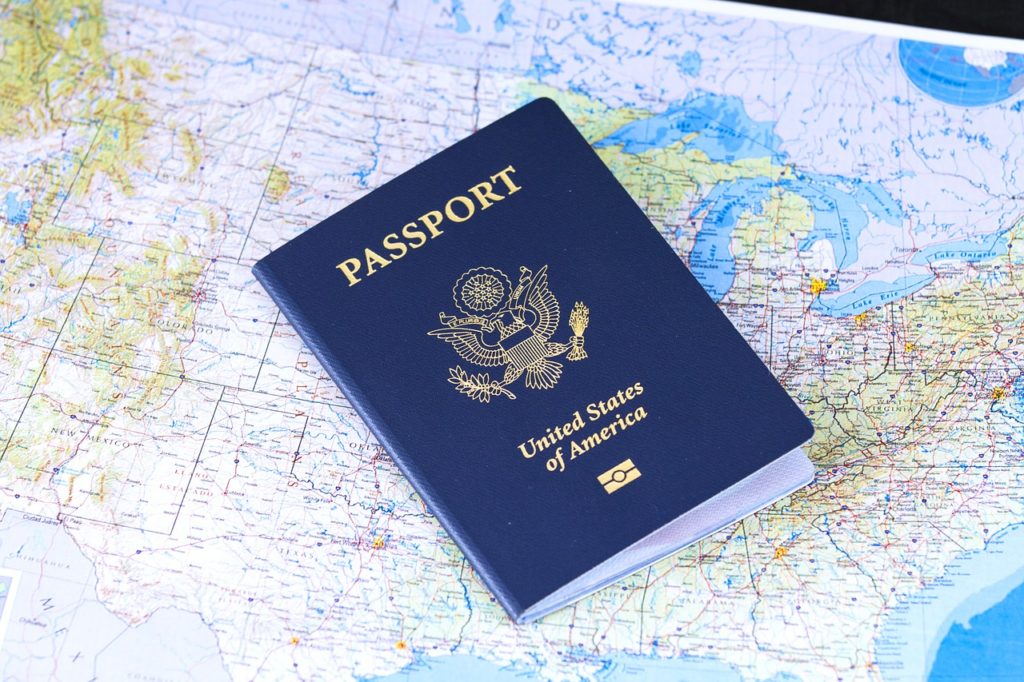Is China your next destination? If so, you’re in for a treat. China is the oldest living civilization that still exists today and holds the record for the largest population. Home to some of the greatest wonders of the world, it’s no wonder China has people buzzing. With their rich history and a plethora of natives in the country, age-old customs and traditions are still practiced today. However, before you can begin your journey, getting a visa for China must be number one on your list. Some China visa requirement documents will need to be presented before a China visa can be issued, but don’t stress, the process is not as daunting as it sounds. Well, getting a visa for China was the easy part. Now, it’s time to start researching some unique facts about China that may surprise you. There are some major cultural differences between China and the United States. Educating yourself before your flight could save you some embarrassment while on your trip. Keep reading to find out may be a cultural norm for some, and a shock to others.

Top 10 Cultural Differences Between China and the United States
1. Dating – In China, marriage is not encouraged until the mid to late twenties. Not only that but dating is also discouraged for teenagers and young adults. American culture is much more relaxed in this regard, and dating is seen as a regular part of early adulthood and adolescent life. Some say Americans could potentially learn a thing or two about dating from the Chinese.
2. Confrontation – The Chinese people try to avoid confrontation at all costs in an effort to save face. In their culture, shouting causes both parties to lose face and can lead to permanent damage to any relationship. Americans, on the other hand, are more likely to be direct and literal, and sometimes view the way the Chinese solve problems confusing and frustrating. In business, Chinese colleagues will never go out of their way to prove a point, as it could embarrass their co-worker, but to Americans, the final outcome is more important than saving face for the other person.
3. Respect – Some might say Americans lack in this field and put more emphasis on themselves than on others. The opposite goes in Chinese culture, it is expected that respect is given to those all around, and their needs are met at each encounter. This goes for all aspects of their lives, whether it be with someone in a store, a bus driver, their family members or a boss. Everyone should be treated with the utmost honor, even more so if the person is an elder.
4. Treatment of senior citizens – In China, elders are held in great respect, both in business and in personal lives. It’s not uncommon in China to find families with several generations all under the same roof. Most of the time, children are expected to care for their elderly parents, and there are even laws requiring children to visit their parents regularly. The same respect goes in the workplace, you won’t find anyone ageist to older people in the business world in China; instead, they are celebrated and honored.
5. Time management – For most Americans, if a report is due on a Thursday, it means by the end of the day, the report should be on the boss’s desk. In China, that report can show up a few days later and no one would bat an eyelash. The same goes for meetings if a meeting is meant to commence at 4 pm, most Americans would be sure to be there at least a couple minutes before, however, the Chinese are notorious for having time as more of a suggestion than an absolute. This can prove to be quite difficult for any Americans traveling to China for a business meeting.
6. Personal space – With China being the most densely populated country in the world, it’s not a shock personal space is limited. Most Chinese are used to cramped transportation, massive crowds, and small living spaces. In China, it’s not considered rude or offensive to be physically close to a stranger, as it would be in the states. Some cities contain over 10 million residents, so the Chinese are quite used to living in close quarters with one another.
7. Honoring the dead – The Chinese are notorious in their respect and recognition for those in their family who have passed. Once a year, family members visit the gravesites for each of their ancestors to pay their respects. This contrasts American culture, mostly because the majority of Americans don’t know where their ancestors have been buried, due to immigration in the early years of the country. Since China’s culture is so much older, and immigration is uncommon, family members can trace their ancestors back for generations.
8. Tipping – Tipping is not customary in China in restaurants and other service industries. The Chinese take pride in being able to provide and take care of themselves, and while Americans see tipping as a nice gesture, it can be offensive to a Chinese person. For example, a waiter who received a tip in a restaurant may feel the diner left them extra money because they thought they were poor, even though it could have been an innocent mistake to an American guest.
9. Staring – While on your trip to China, you may expect to receive a few double takes or stares. In some parts of the country, visitors are still uncommon, and it creates curiosity for the residents. Don’t be shocked if they even take a photo without your permission, or ask to take a picture with you.
10. Gifts may be refused – If you try to give a Chinese person a present, it’s common they will refuse it up to three times. This is in an effort to show humbleness and gratuity to the gift giver.
There you have it! Are you excited for this once in a lifetime trip yet? After filling the China visa requirement paperwork is out of the way of getting a visa for China is a breeze. Within a few weeks, you can be experiencing all the wonders this exceptional country has to offer. Think of all the food you will taste, the sights you will see, and the places you’ll go! Check out our list below for a few extra bonus tips and tricks before your big trip.
Bonus Tips:
- Getting a visa for China should be your top priority
- Bring a copy of your valid passport/ID
- Bring a copy of your China visa
- Bring copies of all China visa requirement documents
- Follow the cultural protocol
- Use a translating app
- Educate yourself on uncommon Chinese customs and traditions
What are the China visa requirements?

The process of getting a China visa is easy, but to ensure your China visa is granted, make sure you have all of the following:
- Passport
- Passport Photo
- Drivers License
- Proof of Travel
- Hotel Confirmations
Getting a visa for China:
In order to obtain your China visa, a few China visa requirements must be filled out. If your passport is expiring within 6 months from the time your China visa is requested, you may need to renew your current passport before your China visa can be granted. Getting a visa for China doesn’t have to be a hassle, a number of top rated visa expediting services, like chinavisadepartment.com, are here to guide you throughout the entire China visa process. The goal of these expediting services is to make getting a China visa quick, painless, and hassle-free. After filling out all of the China visa requirements online, you may be asked to send in copies of photos, proof of travel, and accommodation receipts. If you have already received a China visa in the past, you will be asked to provide the original previous China visa. If you are traveling to China for business, additional China visa requirement documents may need to be provided in order to grant a China visa.
When will I get my China visa?
The whole process of getting a visa for China from start to finish is around 8-10 business days. However, if you are in need of your China visa sooner, priority services are available and getting a visa for China can be accomplished in as little as 3 business days, granted all of your China visa requirement documents are in order. The same goes for a business China visa, if all China visa requirements are met, the process can be completed in 2-3 business days.